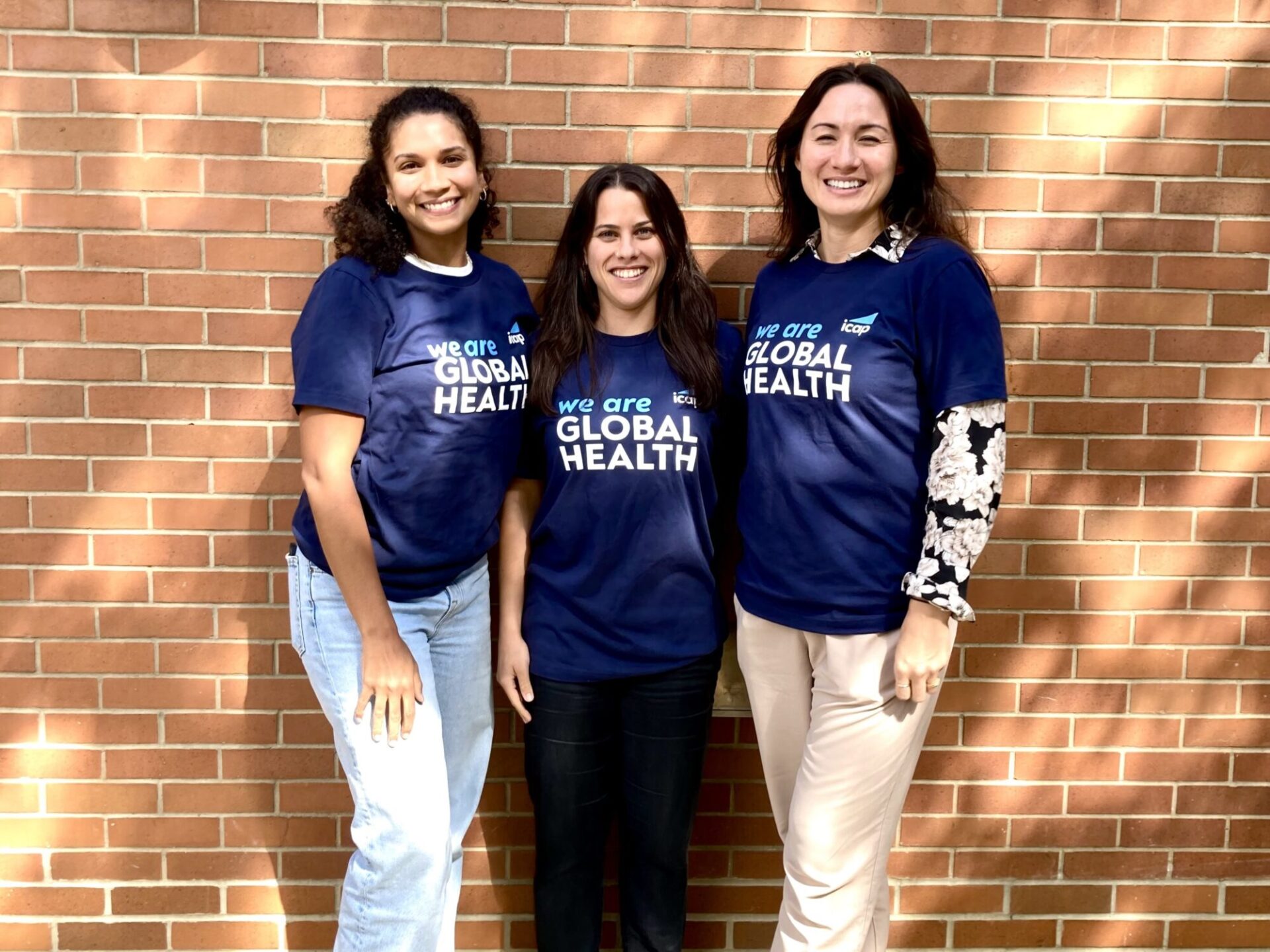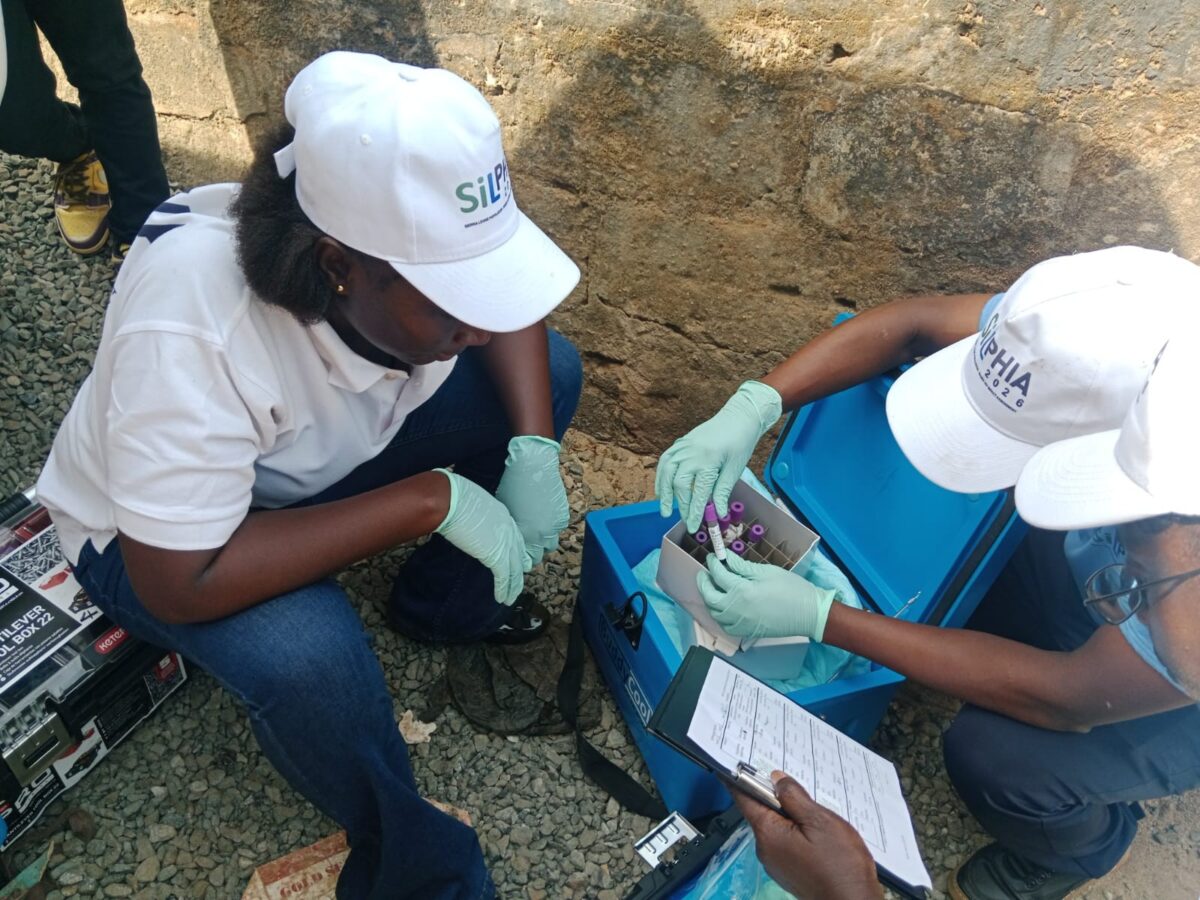On September 19, ICAP graduated its latest round of fellows from its T32 Global HIV Implementation Science Research Training Fellowship, which is part of ICAP’s Next Generation Program, a multidisciplinary initiative that provides participants with hands-on training opportunities in New York and around the world.
The four graduates include three pre-doctoral students in epidemiology – Aleya Khalifa, MPH; Domonique Reed, MPH; Jonathan Russell, MPH — and one post-doctoral trainee, Cho-Hee Shrader, PhD. Each of the graduates has successfully completed several years of rigorous training and mentoring for their research in HIV implementation science; collectively the trainees published over 20 papers, presented 32 abstracts at scientific conferences, and received seven grants and scholarships while participating in the training program.
ICAP established the Fellowship in 2014 with support from the National Institutes of Health’s (NIH) National Institute of Allergy and Infectious Diseases (NIAID). It prepares pre- and postdoctoral individuals for careers as independently funded researchers and leaders in HIV implementation science, a field of study that focuses on closing the gap between evidence-based interventions and the way they are implemented on the ground.
“Training in global HIV implementation science is vitally important at this stage of the HIV epidemic, as we are at a critical juncture,” explained Andrea Howard, MD, MS, who heads ICAP’s Clinical and Laboratory Unit as well as the Fellowship program. “With the efforts of well-trained and skilled investigators who can effectively bridge the implementation gap, we can envision a plan to end the epidemic.”
T32 Fellows pursue a number of activities, including coursework, faculty-fellow seminars, and mentored research placements – many of them international – thanks to ICAP’s work in over 40 countries around the world. The trainees give presentations at conferences and prepare manuscripts for submission to peer-reviewed journals. The fellows also complete training on responsible conduct of research.
“Beyond teaching and learning about the field, we’re really preparing the fellows to create interventions and to test those interventions to push the field of HIV implementation science forward,” said Krystina Jeron, ICAP’s training and education program coordinator in New York.
“ICAP opened all these doors to put my foot inside and decide what I want to do,” said Shrader, who completed the Fellowship’s postdoctoral track. She credits the Fellowship with changing her career trajectory.
“I wasn’t totally sure I wanted to be in academia to be honest, but I really love how at ICAP everyone does research but also on-the-ground programmatic work,” she said. “ICAP people have this reputation of leading with their heart but also doing it from a science perspective. That’s a really great balance I am going to embrace in my career.”
Shrader will continue her post-doctoral training in the Columbia University T32 Substance Abuse Epidemiology Training Program; Khalifa has received an F31 grant from the National Institute of Mental Health (NIMH) to support her dissertation, titled “Applying a multidimensional measure of human mobility to understand drivers of HIV incidence in Rakai, Uganda”; Reed received an R36 NIMH grant to support her dissertation work, which is using large data sets to examine “the role of community and societal determinants of HIV” among adolescent girls and young women in sub-Saharan Africa; and Russell will continue his pre-doctoral training in the Columbia T32 Social Determinants of HIV Training Program.
About ICAP
A major global health organization that has been improving public health in countries around the world for two decades, ICAP works to transform the health of populations through innovation, science, and global collaboration. Based at Columbia Mailman School of Public Health, ICAP has projects in more than 40 countries, working side-by-side with ministries of health and local governmental, non-governmental, academic, and community partners to confront some of the world’s greatest health challenges. Through evidence-informed programs, meaningful research, tailored technical assistance, effective training and education programs, and rigorous surveillance to measure and evaluate the impact of public health interventions, ICAP aims to realize a global vision of healthy people, empowered communities, and thriving societies. Online at icap.columbia.edu








